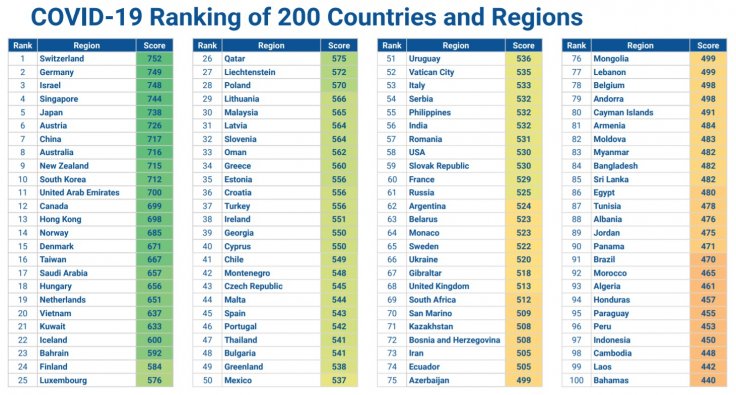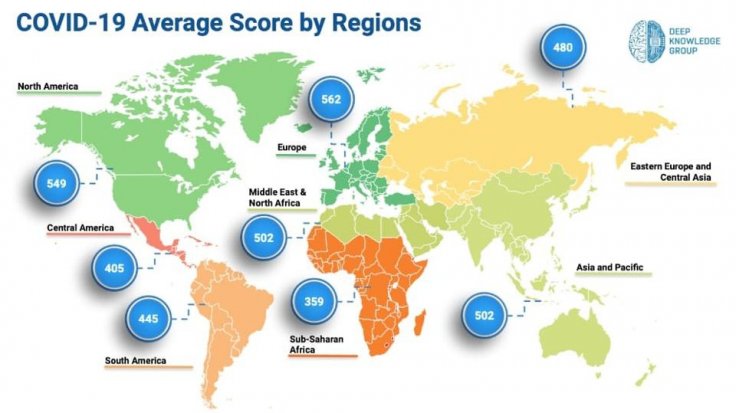Since early January, the spread of Coronavirus accelerated and spread to over 200 countries and territories, sparing hardly any place. But among them, only a few countries have managed to deal with the disease efficiently.
The study done by the Deep Knowledge Group ranked Singapore at fourth, behind Switzerland, Germany and Israel. The city-state has done alright in dealing with the crisis and despite being the No 1 in the total number of cases in the Asia Pacific region, it managed to come out on top.
The company behind the study is Deep Knowledge Ventures, a consortium of companies and non-profits based in Hong Kong. It claims to have surveyed countries on 11,400 data points based on 130 parameters including quarantine efficiency, detection, health readiness and government efficiency among others to rank 200 countries.

"As regions begin to prepare for relaxing lockdown conditions and economic freezing mandates, factors which impact their capacity to withstand economic fallout as a result of the pandemic takes on greater levels of importance," found the study, which derived data from World Health Organization and United Nations among others.
Top Marks for Monitoring and Detection
Singapore's early model of efficient tracing and quarantining the patients were among the world's best. Although the country hasn't maintained its pace in the category, it still aced the monitoring and detection parameters, managing the first place.
"Switzerland and Germany achieve the No 1 and 2 positions respectively in this new special case study specifically because of their economy's resilience, and due to the careful ways in which they are attempting to relax lockdown and economic freezing mandates in a fact and science-based manner, without sacrificing public health and safety," the study said.

But according to the study, the government efficiency and healthcare readiness weren't Singapore's strong forte. It ranked eighth and seventh in those two categories respectively out of 200 countries. In its emergency preparedness parameter, Singapore managed 22nd place — behind Iran and India — two of the worst affected countries.
While the argument could be the clusters emerging from foreign workers' dormitories and not successfully managing to contain them have been the government's weak links, the study lauded Asian countries in managing the disease.
"The majority of positively scoring territories are located in Asia specifically (except New Zealand) and one of the most common factors among them include governments with a high degree of emergency preparedness and rapid mobilization of resources," the report said.
Curious Case of New Zealand
Despite New Zealand coming on top to contain and eliminate the virus from the country with no active patient at preset, it ranked overall ninth. Switzerland with 1,934 deaths and still 354 active cases was placed the safest country while Germany was second despite Germany's over 8,000 death toll and nearly 200,000 cases. South Sudan scored the lowest and ranked 200th amongst the countries surveyed. China, the country of origin of the virus, was ranked 7th.
As the countries begin opening up borders, the chances of another wave will increase. But the readiness to deal with the crisis will slow down the infection rate. But beating the virus is not just about zero patients. It's about resilience to the economic fallout that will follow. According to Calvin Chen, a former nominated member of the Singapore parliament, "It is about balancing lives and livelihoods, about suppressing the virus with the least damage to the economy."
"This will be a 2-3 year fight to make sure that we contain the virus until a vaccine is widely available, whilst making sure we survive and prosper economically," he added.








